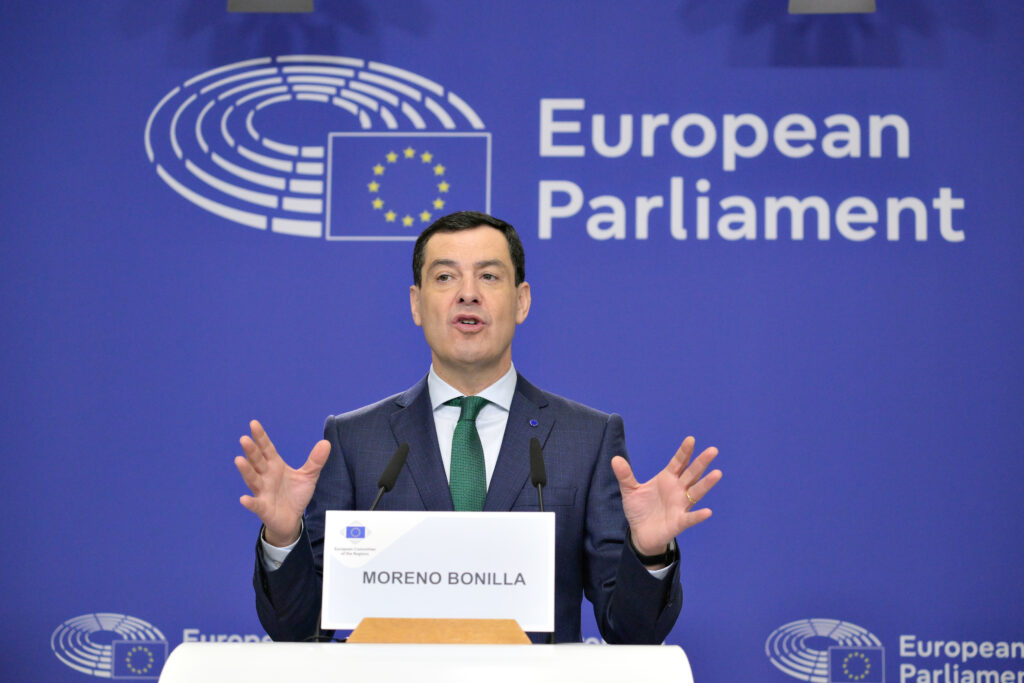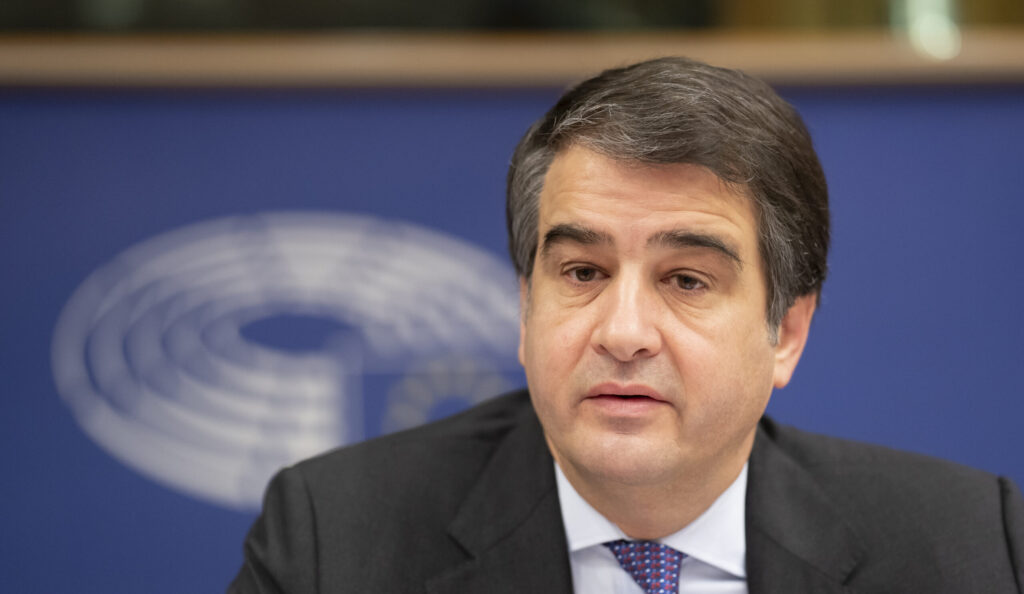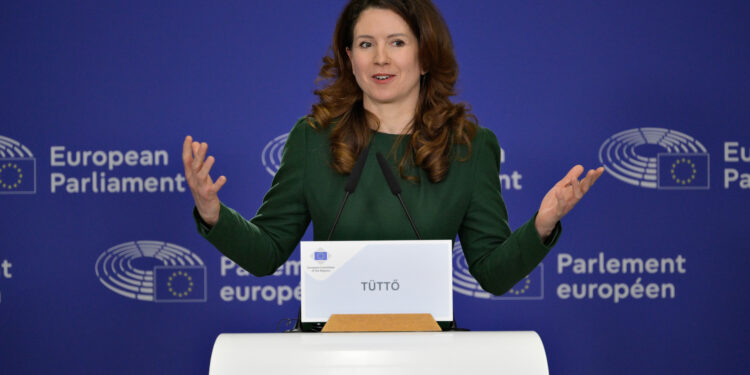Brussels – Handover at the head of the Committee of the Regions (CoR) and already the new chair, Kata Tüttő, a Hungarian socialist, is making the position of local authorities clear by confirming the line of her predecessor: no to the centralization of cohesion policy, yes to more flexibility in managing generous European funds.
The relay between the outgoing legislature and the newly inaugurated one at the CoR occurred this morning (Feb. 20) during the plenary session at the European Parliament hemicycle in Brussels. The Social Democrats entirely lead the event. Vasco Alves Cordeiro, former president of the Azores who has led the institution since 2022, has stepped down, with Kata Tüttő, former deputy mayor and current City councilor of Budapest, succeeding him.
Tüttő will alternate with her deputy, the Popular Moreno Bonilla (president of Andalusia), in the mid-term to head the institution representing the EU’s territories and local autonomies from now until 2030. The agreement reached between the Populars of the EPP and Socialists of the PES follows the tradition of tradition at the CoR, where the two largest groups share the two-and-a-half-year mandate at the committee’s helm.
Centralization vs. flexibility
“Cohesion policy is Europe’s most important stabilization instrument, economically, socially and territorially,” the new president told the House, adding that this instrument “needs to be calibrated and recalibrated continuously.” Therefore, she calls for greater “flexibility” of regional policy (which commits about one-third of the community budget).
In other words, decentralization is key. Cohesion “cannot be overly centralized or controlled because then it becomes rigid, and when it becomes rigid, it fails to achieve its purpose, which is to help us manage this epochal transformation” that the Old Continent is going through, between geo-strategic threats, economic upheavals, and green and digital transitions, Tüttő explained.

The reference, once again, is to the alleged intention of the president of the European Commission, Ursula von der Leyen, to revolutionize the upcoming 2028-2034 multi-annual budget for the period (MFF). Media reports, which the Berlaymont never officially denied, speak of restructuring the EU budget along the Recovery fund model: no longer a plethora of European programs, but 27 national plans centrally managed by member state governments, an idea that has already raised some eyebrows among some local bodies.
Tüttő doubled down at a press conference shortly after her election. The fearful centralization “has its usefulness,” she conceded. But “it brings rigidity, whereas when there is a need to adapt to as many fast changes as we are experiencing, it is necessary to be flexible,” she reiterated, assuring that with the CoR (but also with “all other mayors and local politicians” not represented at the committee) “we fight” any centralizing moves.
The role of the territories (and of Fitto)
“We want to improve these policies because we want to ensure the security of our citizens,” she continued, stressing that “you cannot change cohesion policy without understanding our realities,” without listening to the direct emanation of the voice of European communities. “We cannot neglect the territories,” she repeated, warning that if local realities are overlooked, “European decision-making loses its connection” with citizens.
It is a warning not only to von der Leyen but also to her executive vice president, Raffaele Fitto, whose delegations to Cohesion and Reforms put him at the forefront of the hypothetical restructuring of post-2027 regional policy. “We hope Fitto has his ears open, as we keep our arms open” to collaborate with the community executive, she said. The former president of the Puglia region will address the committee’s plenary in the afternoon.

Since his new post began, Fitto seemed open to collaborating with local authorities, highlighting their centrality in managing cohesion funds. However, he has not yet detailed how he intends to “update” this important spending chapter, which, he said, should be “corrected” by simplifying it, increasing its flexibility, and strengthening its governance: a little more than a smoke screen, impenetrable for now, leaving everyone on edge.
Defense funds?
As for the long-discussed idea of redirecting some of the cohesion funds to the defense sector, Tüttő stressed that “security has many dimensions.” “Not only border control,” she said. “There is also the social, climate, and technological dimension:” all areas that must remain “at the center of our thinking” to “provide affordable homes, clean air, and transport for the citizens” of the Union.
A holistic security approach that also includes the protection of the Green Deal, Tüttő said (who describes herself as “a feminist,” noting the importance of a woman serving as CoR president for the second time). Its pillars include energy security and “continuous adaptation” to the new realities brought about by climate change, as the two new leaders of the Committee know well, given their origins from regions recently affected by extreme weather events.
English version by the Translation Service of Withub
![Il comitato europeo delle regioni riunito in sessione plenaria [Bruxelles, 19 febbraio 2025]](https://www.eunews.it/wp-content/uploads/2025/02/cor-plenary-350x250.png)







